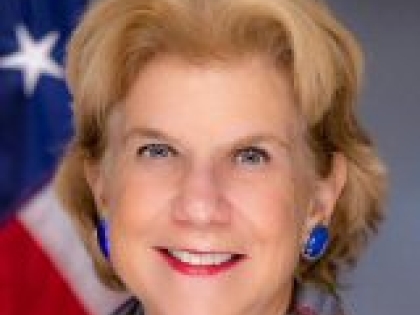
New York’s Public Service Commission Must Protect Westchester, NYC Ratepayers | Opinion

Right now, the New York State Department of Public Service, ConEd and other parties are engaged in confidential settlement negotiations, netting out the details of rate hikes that will impact ratepayers in ConEd’s service area in New York City and Westchester for the next several years. These negotiations will culminate in a joint settlement agreement which will have to be formally approved by the Public Service Commission, likely sometime this fall. As parties negotiate behind closed doors — and ratepayers anxiously await further bill increases — I urge the Department and Commission to take seriously their responsibility to New York consumers and ensure that the final rate plan does not include unjust enrichment for ConEd.
I have been opposed to ConEd’s request to increase rates since they first petitioned the Public Service Commission in January and have twice testified against it. My constituents, and ratepayers throughout the service territory, cannot afford their bills as it is. The increases ConEd is seeking are simply untenable. ConEd’s proposal, according to their own projections, would increase delivery bills by 19.1% for electric and 25.1% for gas. That means an average monthly bill increase for residential customers of $26.60 for electric and $46.42 for gas for the typical customer.
At the same time, I have been pursuing legislative change to transform the process by which rates are set and finally rightsize the profit utility companies are allowed to earn at the expense of ratepayers. I’ve passed legislation three times through the Senate to reform the way that the rate of return on equity, or ROE, and common equity ratio are set in rate cases. Bloated ROEs drive rates up for consumers and allow utility companies to earn unfair profit at the expense of New Yorkers.
I’ve also introduced new legislation this year to target two particularly unfair aspects of rate plans: recoverable expenses and deadbands. Under current law and practice, utility companies are entitled to recover 100% of operating expenses including inflated executive salaries and their legal costs associated with participating in rate cases. For example, according to research by AARP, ConEd customers paid for more than $6.5M in legal fees associated with ConEd’s participation in their 2019 rate case. We as ratepayers literally pay for utility companies to argue before the PSC that they need to increase our bills!
I’ve also introduced legislation to end the practice of “deadbands” — a hidden mechanism utility companies and the PSC use to squeeze more profit out of ratepayers. The joint settlement proposal will include an agreed-upon ROE that ConEd is entitled to earn as part of the rate case. But in most cases, that number is misleading. Rate plans typically include a “deadband” on top of the approved ROE which allows a utility company to retain usually half a percent more in revenue than their approved ROE. In ConEd’s current rate plan, for example, they were approved to earn an ROE of 9.25%, but with the deadband, they are actually entitled to earn 9.75% before they have to return even a penny to ratepayers. This mechanism has allowed utility companies to retain millions in excess profits. I carry legislation to end this practice, and to require utilities to return 100% of earnings above their approved ROE to consumers.
As we in the Legislature continue our work to transform the rate setting process, DPS and PSC have an opportunity to lead the way in protecting ratepayers and reforming the ratemaking process. I urge the Department and Commission to take these legislative proposals to heart and incorporate them in the ConEd rate case. The Department and Commission should carefully scrutinize and limit the operating expenses Con Edison seeks to recover, including salaries for utility management employees and expenses related to Con Edison’s participation in this rate case. Further, the Commission should not approve any joint settlement which includes a “deadband” or allows ConEd to retain any revenues in excess of their approved ROE.
In January, the governor urged the PSC to reject ConEd’s original proposal and “take all necessary steps to protect ratepayers from Con Edison’s unconscionable rate hike.” I hope the PSC will head her call and adopt meaningful reforms as part of this rate case which can set our state on a fairer pathway in future cases. Ratepayers can no longer accept business as usual.
New York State Sen. Shelley Mayer, a Democrat, represents the 37th District.


